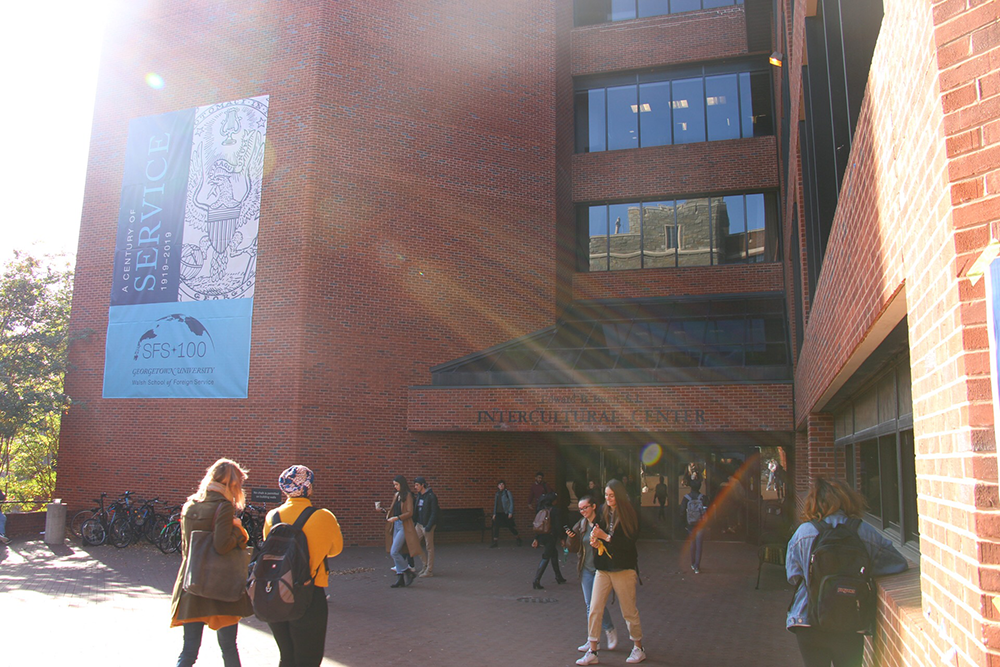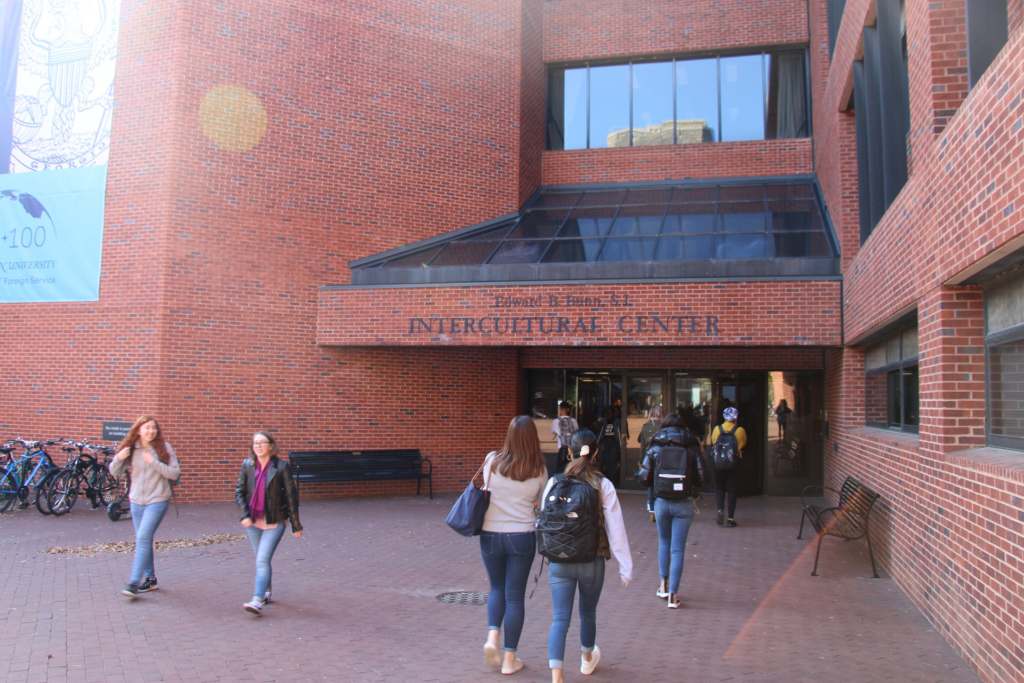The School of Foreign Service appointed professor Scott Taylor as the school’s inaugural vice dean for diversity, equity and inclusion as part of an ongoing effort to adopt anti-racist practices in the school.
SFS Dean Joel Hellman announced Taylor’s appointment to the position in an email to SFS faculty, students and staff July 23. Taylor, who currently serves as the director of the African studies program, will officially begin his new role Aug. 15. The program has yet to announce a new director.

In the weeks leading up to the position’s creation, SFS faculty drafted a petition demanding the school commit to racial justice and formed an ad hoc committee to recommend policies to Hellman.
Hellman said he valued the input his SFS colleagues had provided and endorsed the committee’s proposal to create a new vice dean position, citing the urgency of taking immediate anti-racist action.
“One of these actions was to establish a Vice Dean position on Diversity, Equity and Inclusion. I asked the ad-hoc group to recommend candidates for the position and the members unanimously endorsed Prof. Taylor,” Hellman wrote in an email to The Hoya. “As Prof. Taylor is a senior member of the Georgetown community who has proven his leadership as head of our African Studies Program as well as other areas, I fully endorsed their recommendation.”
Georgetown College is the only other school with a deanship dedicated to diversity and inclusion. Rosemary Kilkenny (LAW ’87) became the Georgetown University’s first vice president for institutional diversity and equity in 2006.
Taylor expressed gratitude for the appointment and the school’s swift pursuit of anti-racist initiatives.
“I am impressed by the dean’s commitment, and I mean that genuinely,” Taylor said in an interview with The Hoya. “I also want to acknowledge that it happened much more quickly than most of us anticipated and certainly me. And so I think that’s really a great sign and I’m really very, very encouraged about that.”
Arab studies professor Fida Adely, who helped draft the original call-to-action petition, said Taylor’s appointment is a clear sign the administration is serious about calling for global anti-racism and hopes his new administrative role will make it easier to work with the administration to achieve anti-racist objectives.
“Among the priority areas I hope the new Vice Dean can lead us in is diversity in hiring, curricular reform and review, and reviewing admissions processes to ensure that we are doing more to diversify our students body,” Adely wrote in an email to The Hoya. “It is my hope that having an established vice deanship means that there will be on-going engagement and dialogue with students, faculty and staff around racism and what it means to be anti-racist.”
Taylor said his main objective in his new position is to meet three main categories of demands provided by the ad hoc working committee, which include revamping the SFS curriculum, increasing faculty diversity and examining the admissions process.
“I will be tasked with helping to push forward the curriculum. So trying to create a more inclusive, 21st-century curriculum in the SFS that recognizes our diversity in this country, that recognizes for a fact that there is such a thing as systemic racism and much of our curriculum even inadvertently perpetuates this,” Taylor said. “It’s not a call to reject the so-called canon in any particular field. But it is a call to recognize other voices and be more inclusive.”
Despite the COVID-19 pandemic creating a financial barrier to hiring new faculty, Taylor said he believes there is significant potential for recruiting diverse voices that will make the SFS stronger.
“We want people to sort of think about, ‘How can we make the school better?’ And it’s not about representation for representation sake, although I happen to think that’s important. But I think it also makes us better as an institution, and I firmly believe that, and most of my colleagues, I think, believe that too,” Taylor said. “And so even in this, you know, hiring freeze environment, I think we can push forward a lot.”
Taylor hopes to better the SFS admissions process by reevaluating potentially discriminatory admissions practices and improving yield among minority students. Two SFS students created a petition calling on the university to end legacy admissions at the university in July.
While Taylor will be an important leader on these efforts, Hellman said his appointment is meant to focus on the big picture, and he expects smaller groups and programs within the SFS to develop policies as well.
“It is important that we have someone on the leadership team dedicated to engage our community in moving from outrage to action on racism, inequality and injustice. But one person cannot substitute for the responsibilities of our whole community,” Hellman wrote. “The ad hoc group of faculty has recommended a set of concrete reform proposals. Many of our individual centers and programs have drafted their own action plans. These will be published shortly to generate discussion, debate and, hopefully, further recommendations from students, faculty and staff. Then, we need to move forward on making change happen.”
Taylor also acknowledged the long road to progress and hopes the community’s momentum behind anti-racist initiatives will continue.
“I’ve been incredibly inspired by the energy from staff, colleagues, from my students, and students I don’t even know,” Taylor said. “This can’t be an individual effort or it will fail. It has to be part of a collective community commitment.”





















